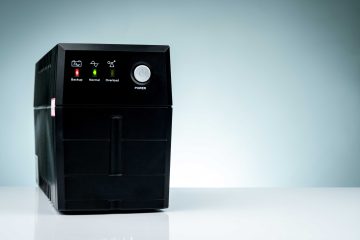An ideal heat exchanger will optimize your outdoor boiler for performance, efficiency, and life. Many other options range from wood boiler heat exchangers to plate heat exchangers, so a well-educated decision makes all the difference in the effectiveness of one’s heating system. This article will explain all of the important factors to consider when choosing the best heat exchanger for an outdoor boiler.
Top 3 Heat Exchangers for Outdoor Boilers
In searching for the right heat exchanger to be installed in an outdoor boiler system, one shall choose according to need. Here are the top three kinds of heat exchangers used:
- Water to Air Heat Exchanger
- This type of heat exchanger transfers heat from the water in your outdoor boiler to air in your home. Most often, it works with the aid of a fan blowing air over a series of coils or fins through which hot water circulates.
- Usage: It is ideal for forced heating; typical uses in heating homes with ductwork; it can be an effective method to distribute warm air throughout a building quickly.
- Water to Water Plate Heat Exchanger
- Plate heat exchangers include a stack of thin, flat plates packed with gaskets or welding to seal and form flow channels. Heat is transferred from one source of water to another using the method through the plates, but two fluids do not mix.
- Usage:They have wide applications in view of them being versatile and very effective normally in the transfer of heat from one water system to another. They can also be applied to various systems like heating domestic hot water, radiant floor heating, and other hydronic heating systems.
- Pool/Spa Heat Exchangers
- They are specialty exchangers designed to provide heat to pools or spas by way of transferring heat from boiler water to pool/spa water.
- Usage:They hold the temperature of water in the pools and spas during the periods of low temperature outside or off-season times.
Different Usages of Plate Heat Exchangers
Plate heat exchangers are designed to be highly versatile and find application in various industries, including but not limited to the following:
- Domestic Hot Water Heat Exchangers
- They are used to give heat to domestic water supplies. They transfer heat from the boiler water to water in your domestic hot water system.
- Usage:They provide an effective way to have a continuous flow of hot water to the house for showers, faucets, dishwashers, and clothes washing machines.
- Indoor Heating of Buildings with Baseboard Radiant Tubing
- In buildings that have baseboard radiant heat, plate heat exchangers transfer heat from the boiler water to water circulating through units in the baseboards.
- Usage:It provides an equally distributed, comforting heat source along the baseboards, which adds to the general warmth and comfort in a room.
- Indoor Heating of Buildings with In-Floor Tubing Radiant Heat
- Plate heat exchangers can be utilized for heating water circulated through in-floor tubing systems.
- This type of radiant floor heating warms the space from the upward direction of the floor and makes it warm, hence lessening other sources of heating.
Factors to Consider When Selecting the Heat Exchanger
1. Heat Transfer Efficiency
The efficiency is one major factor when choosing a heat exchanger. Ensure to look for a model with a high thermal efficiency rating to ensure that heat is transferred effectively from the boiler to your home’s heating system or domestic water supply. This will ensure improved performance while at the same time reducing energy consumption and costs.
2. Material Durability
The material for the heat exchanger affects its durability and performance. Take a look at these materials:
- Copper: Known for its great thermal conductivity, but sometimes vulnerable against corrosion, which could be aggressive with poor-quality water
- Stainless Steel: Resists corrosion pretty well; this can work with all types of water quality and temperature.
- Titanium: Allows excellent resistance to corrosion, especially in saltwater; however, it may also be more expensive.
Selection of a heat exchanger fabricated with high-durability materials ensures that it withstands operational conditions and can last for a longer time.
3. Size and Capacity
The heat exchanger must be correctly sized relative to your outdoor boiler and heating requirements. If it is too small, you may get inadequate heating; on the contrary, too large a unit will not be efficient and will cost more than it should. That being the case, the size and capacity of the heat exchanger need to be matched according to system specifications. Consult a professional to establish a correct size as a function of your heating needs and boiler output.
4. Flow Rates and Pressure Drop
Another two crucial parameters that one should check in a heat exchanger are its flow rate capacity and pressure drop characteristics. It has to be rated for the required flow of your heating system to enable the system to work efficiently. In addition, pressure drop across the heat exchanger has to be considered since high-pressure drop will decrease system efficiency and require more energy to circulate fluids.
5. Compatibility with Existing Systems
Make sure your heat exchanger will be compatible with your existing boiler and heating system. This includes connections, fittings, and tie-ins to the current infrastructure. Compatibility reduces installation difficulties and assures a smooth operation with your outdoor boiler.
6. Maintenance and Cleaning Requirements
A heat exchanger must have regular maintenance to work with good efficiency. Opt for a model which is easy to clean and maintain. Several heat exchangers have removable plates, with other components that can easily be accessed for routine maintenance and problem-solving.
7. Cost and Warranty
Factor in the overall cost of the heat exchanger itself with its installation and further long-term servicing. Indeed, it is usually the case that higher upfront costs may be balanced by increased efficiency and durability. Besides, one should get the warranty that is offered by the manufacturer to ensure that you have insurance against any possible defects or problems.
Conclusion
Factors in getting the perfect heat exchanger to work with your outdoor boiler or furnace include many things: type, efficiency, size, installation, and beginning with, being compatible with your current system. Learning more about each of these factors will help you make an informed choice in order to obtain the best possible output from your boiler toward truly efficient heating.
For more information and further options visit the outdoorboiler.com.
Stay connected for the latest news and exciting stories on Creative Released!



